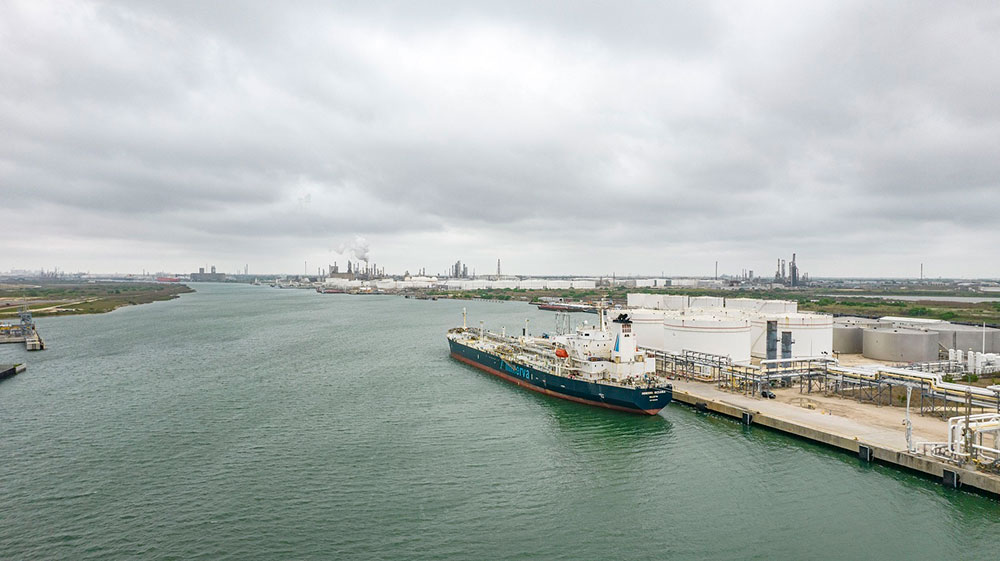Nothing is permanent except change
As the competitive landscape evolves, so too will our role as a supply chain manager

Change is one of the few constants in commodity trading and the past three years have tested the industry’s ability to adapt like never before.
Successive shocks – Covid-19, Europe’s energy crisis and the war in Ukraine – have disrupted traditional trade flows, adding to the cost and complexity of moving goods around the world, from producer to consumer.
We have also seen increased government intervention in markets, regionalisation and wild fluctuations in commodity prices.
All of which has made the business of supplying the vital natural resources needed to power and build the world significantly more complex, but also more needed than ever before.
From Trafigura’s perspective, we have been able to successfully tackle these challenges and provide our customers with security of supply throughout a period of extreme volatility.
We achieved this by drawing on the global network, expertise and capabilities we have steadily built up over the past three decades - and the company will need to draw on these strengths again.
To thrive in fast-changing environments requires many things. One is ready access to capital to meet significantly increased collateral requirements, as well as risk management capabilities, a dynamic organisation and highly skilled people who can quickly adapt to new market realities.
On top of that, companies in our industry must have the ability to process vast amounts of data to understand increasingly complex markets and maintain a competitive edge.
These requirements and others – such as the need for global compliance teams to keep pace with new rules and regulations – present formidable barriers to entry.
As the competitive landscape evolves, so too will our role as a supply chain manager.
The war in Ukraine and the sanctions introduced as a result have already caused a rewiring of global trade flows, most notably in oil. Russian oil, traditionally shipped to Europe, is now heading to other markets such as India and China, often on older vessels operating outside western sanctions regimes. Meanwhile, oil from the Arabian Gulf and US is being sent to Europe to fill the gap.
This has resulted in average distances for shipments of crude and oil products increasing materially, placing a significant strain on the freight market. It is also driving up the carbon intensity and environmental risks associated with global energy trade.
There have been seismic shifts in gas markets too, as Russian flows to Europe have all but ceased. To compensate, Europe has been forced to temporarily restart its fleet of coal fired power plants and compete aggressively for cargoes of liquified natural gas (LNG).
Security of supply has taken on heightened importance with large industrial companies increasing the inventory they keep on hand and entering into longer term contracts.
Governments, especially in Europe, are securing supply of vital commodities through instruments such as loan guarantee programmes. As an example, Trafigura recently signed a four-year deal to deliver substantial volumes of gas into Europe’s gas grid, and ultimately into Germany.
Many countries are also looking to strengthen energy security by increasing domestic production of renewable power, effectively accelerating the pace of the energy transition. This, in turn, is driving increased demand for the metals and minerals needed to build the clean energy infrastructure of a low carbon economy.
Indeed, we are already seeing structural change in demand for industrial metals including copper, battery-grade nickel and zinc.
Infrastructure investments linked to the energy transition and the emergence of electric vehicles is creating a new wave of demand on top of the traditional drivers of industrialisation and urbanisation.
This is driving significant demand increases for these key metals as well as the requirement for greater transparency.
Before the pandemic, our customers’ main focus was on cost, timing and quality. Today, they also want to know where commodities come from, that they were produced and sourced responsibly and the lifecycle carbon footprint.
As a leading supplier, we are well placed to benefit from these trends but we also recognise the need for increased investment in new supply.
We are using our deep experience of commodities to develop new markets for renewable hydrogen and ammonia, and invest in others such as carbon dioxide removals projects.
Oil and gas will also be required for many years to come too, to support ongoing urbanisation in Africa and Asia, and to fuel the infrastructure build-out needed to transition to a low-carbon world.
It is for these reasons that we expect demand for our services – managing complex supply chains, supporting investment in new supply and helping to develop new markets to facilitate the energy transition – to remain high.
Or to quote a recent report on commodity trading by consultancy group McKinsey: “While all industries go through multiyear cycles of peaks and troughs, the industry’s prospects look excellent for the years ahead.”
This article was first published by L’Agefi, Finanz und Wirtschaft and the Swiss Trading & Shipping Association (STSA) as part of a special edition - click here.
